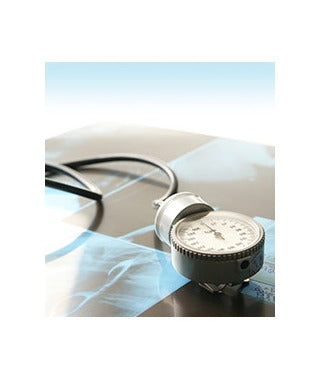Cardiovascular Health 101: Keeping the Heart Healthy
To get a better understanding of cardiovascular health it is important to understand what the heart is, what habits can be detrimental to it and how to keep it healthy. The brain might be the body's control system, but without the heart the brain wouldn’t get the oxygen it needs to do its job. Due to this direct correlation, brain health is linked to heart health, and keeping them both as strong and healthy as possible is the key to living a long and healthy life.
Understanding the Heart
The heart is the central component in the body's cardiovascular system. It is a muscular organ that is about the size of a fist, located slightly left of center in the chest.
While the heart is a single organ, it is separated into two divisions; the left side and the right side. The reason for this is so that the oxygen-poor blood that's returning to the heart along the right side of the heart does not mix with the fresh, oxygen-rich oxygen leaving the heart from the organ's left side.
What Is Cardiovascular Disease?
Cardiovascular disease is not a singular disease. There are a wide range of heart problems that can be classified as a cardiovascular disease, including atherosclerosis, high blood pressure, arteriosclerosis, abnormal heart arrhythmia, cardiomyopathy and more. Any health problem directly affecting the heart or the blood vessels and arteries can be classified as a cardiovascular disease.
What Causes Cardiovascular Disease?
Cardiovascular disease can be caused by several different factors, both fixed and variable. For instance, fixed factors (those that cannot be changed or modified) include heredity, age and gender. Variable factors (those that can be changed or modified) include weight, high blood cholesterol, high blood pressure, smoking, alcohol use, physical inactivity, stress and diet.
Complications of Cardiovascular Disease
Cardiovascular disease is the number one killer in the United States. In fact, it is responsible for half of all deaths in America and it kills twice as many people as cancer. If left untreated with habits unchanged, cardiovascular disease can result in several different serious complications, including:
- Aneurysm
- Heart Attack
- Heart Failure
- Peripheral Artery Disease
- Stroke
- Sudden Cardiac Arrest
Improving Cardiovascular Health
If one's family has a history of heart problems or they are at high risk of cardiovascular disease for another reason, the first thing that they can do to make an immediate impact on their cardiovascular health is to stop smoking and/or drinking alcohol. These two vices dramatically increase the number of free radicals produced in the body, and stopping them completely can have a big impact. There are other actions to take—exercise, diet and supplements among them—and we’ll go through them in more detail.
So are you ready to learn more? Check out the next article in our Cardiovascular Health series, Common Causes of Cardiovascular Problems.Disclaimer:
The information provided is for educational purposes only and does not constitute medical advice. Always seek the advice of your physician or qualified healthcare provider with any questions or concerns about your health. Check with your doctor before beginning any exercise program. Never disregard or delay seeking medical advice because of something you have heard or read in this article or the internet.

